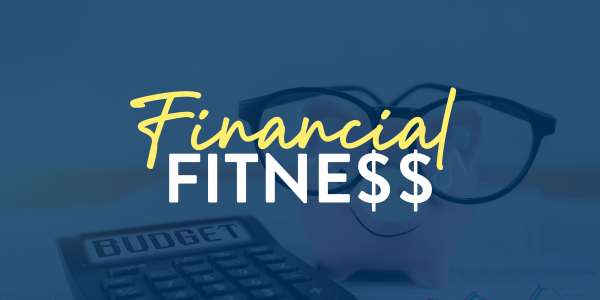Earlier than you go too far down the house-hunting rabbit gap, you’ll wish to make sure that you meet the credit score rating necessities to safe a mortgage mortgage. In any case, this mortgage mortgage will will let you buy your dream house. And whereas many elements go into qualifying, a very good credit score rating is certainly considered one of them.

We all know that getting “rated” could make you’re feeling such as you’re again at school. Like at school, nonetheless, with just a little exhausting work, self-discipline, and dedication, you possibly can enhance your credit score scores rapidly!
So let’s soar proper in, beginning with the plain.
What Is a Credit score Rating?
Credit score scores vary from 300 to 850. The Honest Isaac Company, also called FICO, initially created this scale to assist lenders and traders decide the creditworthiness of shoppers.
A better credit score rating signifies that you simply’re a lower-risk borrower, which might result in a decrease mortgage fee over the lifetime of the mortgage. That’s as a result of a very good credit score rating and a powerful credit score report indicate that you would be able to handle your credit score correctly and make well timed funds. Lenders usually tend to give you a decrease rate of interest mortgage mortgage if you’re a high-credit-score (low-risk) borrower.
Different companies have adopted an analogous scale and are anticipated to begin enjoying a much bigger function in credit score scoring within the coming years. On the finish of the day, your credit score rating is a instrument that gives a snapshot of your credit score historical past to lenders, basically summarizing the chance of lending to you.
What Determines Your Credit score Rating?
5 elements assist calculate your credit score rating. Right here’s an summary of those components of the credit score scoring mannequin.
1. Cost historical past (35% of your general rating)
Paying your credit score accounts on time—together with bank cards, auto loans, scholar loans, medical payments, and any private loans—can improve your credit score rating. In the identical vein, late funds can negatively affect your credit score rating.
The credit score scoring mannequin considers the frequency and severity of those late funds. A 90-day late fee, for instance, can have a bigger destructive affect in your credit score rating than a fee that’s 30 days late. Finally, you wish to do what you possibly can to pay your payments on time to make sure that you don’t make adverse credit worse or reverse all of the work you’ve achieved to enhance your credit score rating.
2. Utilization fee (30% of your rating)
The ratio of your credit score account balances to your accessible credit score restrict is named the utilization fee. The credit score bureaus think about the utilization fee of your particular person playing cards, in addition to your general cumulative credit score limits, on this issue. A balance-to-credit-limit ratio under 30% might enhance your credit score scores, whereas a ratio above 30% might result in adverse credit.
3. Size of historical past (15% of your rating)
The age of your credit score accounts issues. What we imply is that it pays to ascertain an extended historical past of credit score utilization and on-time funds. Credit score accounts which have been open and utilized for years can enhance your credit score rating.
Many individuals use their bank cards for his or her month-to-month bills, which earns them perks and helps set up their popularity as accountable debtors. This can be a good concept provided that you realize you possibly can pay your stability off each month.
With this in thoughts, you would possibly assume that it is smart to open a bunch of recent credit score accounts, simply so long as you repay the stability on the finish of the month. However opening new credit score accounts really lowers the size of your credit score historical past.
This can lead to a decrease credit score rating within the first 12 months. As soon as an account reaches 24 months or longer, nonetheless, it turns into a extra established account. That’s when you possibly can count on to see a optimistic affect.
That is additionally why a mortgage lender might inform potential homebuyers not to open new traces of credit score once they’re making ready to purchase a home. It could decrease your credit score rating and probably have an effect on your debt-to-income (DTI) ratio.
4. Kind of credit score (10% of your rating)
Also referred to as credit score combine, credit score scoring fashions think about what sort of credit score you will have. Typically talking, a mixture of totally different credit score sorts is extra favorable than just one sort of credit score. Varied kinds of credit score might embrace a revolving bank card, an auto mortgage, and an installment mortgage, for instance. This mixture of credit score sorts can produce the next rating than utilizing revolving bank cards.
5. Inquiries (10% of your rating)
When a lender pulls your credit score, it’s thought-about a “exhausting” inquiry. That may have a destructive affect in your credit score rating. Which means you would be dinging your rating each time you apply for a brand new bank card or mortgage.
Not all inquiries negatively affect your credit score, although. Pre-approval and employer inquiries that verify your credit score aren’t detrimental and don’t set off calls and letters from different events making an attempt to promote you their newest and best bank card. A number of inquiries from mortgage corporations made inside a 45-day window will ding your credit score rating solely as soon as, permitting shoppers to do their analysis with out decreasing their credit score rating.
After all, not all inquiries negatively affect your credit score. “Smooth” inquiries, corresponding to a possible employer checking your credit score, aren’t detrimental. A number of inquiries on a single new account, corresponding to a number of credit score checks in your mortgage, ding your credit score rating solely as soon as, so long as these checks are all made inside 45 days of each other.
What if you wish to verify your credit score scores your self? Any request concerning your private credit score is taken into account a tender inquiry and gained’t depend towards you.
What Are the Credit score Rating Necessities to Purchase a Home?
Each mortgage lender is totally different. No magical quantity will all of the sudden unlock a house mortgage, however there are credit score rating ranges that lenders typically view extra favorably than others.
Credit score scores are sometimes seen this manner:
- 800–850: Wonderful
- 700–799: Superb
- 680–699: Good
- 620–679: Honest
- 580–619: Poor
- 500–579: Dangerous
- 499 and decrease: Very unhealthy
A better credit score rating can result in a extra favorable house mortgage rate of interest. Nevertheless, it’s vital to notice that the credit score rating is only one a part of the equation, and different elements corresponding to revenue and DTI ratio additionally play a job in house mortgage qualification.
Every mortgage lender has its personal technique, together with the extent of danger they discover acceptable for a given credit score product. So do not forget that there’s no customary “cut-off rating” utilized by all lenders. As an alternative, these normal ranges can inform them whether or not a possible borrower has a very good or adverse credit rating or someplace within the center.
Don’t overlook: On the subject of qualifying for a mortgage, your credit score rating is just one a part of the equation. A borrower can have an ideal 850 rating, but when their revenue and DTI ratio don’t assist the mortgage quantity they’re requesting—say they make $30,000 a 12 months and are taking a look at properties within the $800,000 vary with no different liquid belongings—their desired quantity can nonetheless be denied.
How Do You Examine Your Credit score Rating?
You may request a free copy of your credit score report annually from every of the three credit score bureaus: TransWestern, Experian, and Equifax. You may contact these bureaus immediately or go to Annual Credit score Report to get all three.
This can be a stable technique in case you’re trying to get a mortgage mortgage within the subsequent three months. If in case you have a while and wish to enhance your credit score, you possibly can at all times request one report from every credit score bureau each 4 months to trace your progress.
As soon as your credit score report is in hand, evaluation it for accuracy. Name the credit score bureaus in case you discover any errors or in case you have questions on something within the report.
How Do You Enhance Your Credit score Rating?
For those who discover that your credit score wants some work, keep in mind the 5 elements figuring out your rating after which set about optimizing your credit score.
The simplest methods to do that:
- Make funds on time each time.
- Pay bank cards right down to 30% or much less of their credit score limits.
- Restrict the variety of accounts you apply for at one time.
- Go away established, older accounts open even when they’re paid off.
Take into accout, too, that you simply would possibly be capable of qualify for a mortgage mortgage even when your credit score rating is within the “poor” to “truthful” vary. That’s as a result of credit score isn’t the one issue thought-about.
APM’s specialty applications might help people who’ve beforehand had a brief sale, pre-foreclosure, or foreclosures reenter the housing market. There is no such thing as a must depend your self out of the market simply because your credit score rating is lower than excellent.
If in case you have questions on your credit score or wish to study extra in regards to the homebuying course of, click on right here to attach with an APM Mortgage Advisor in your space.









